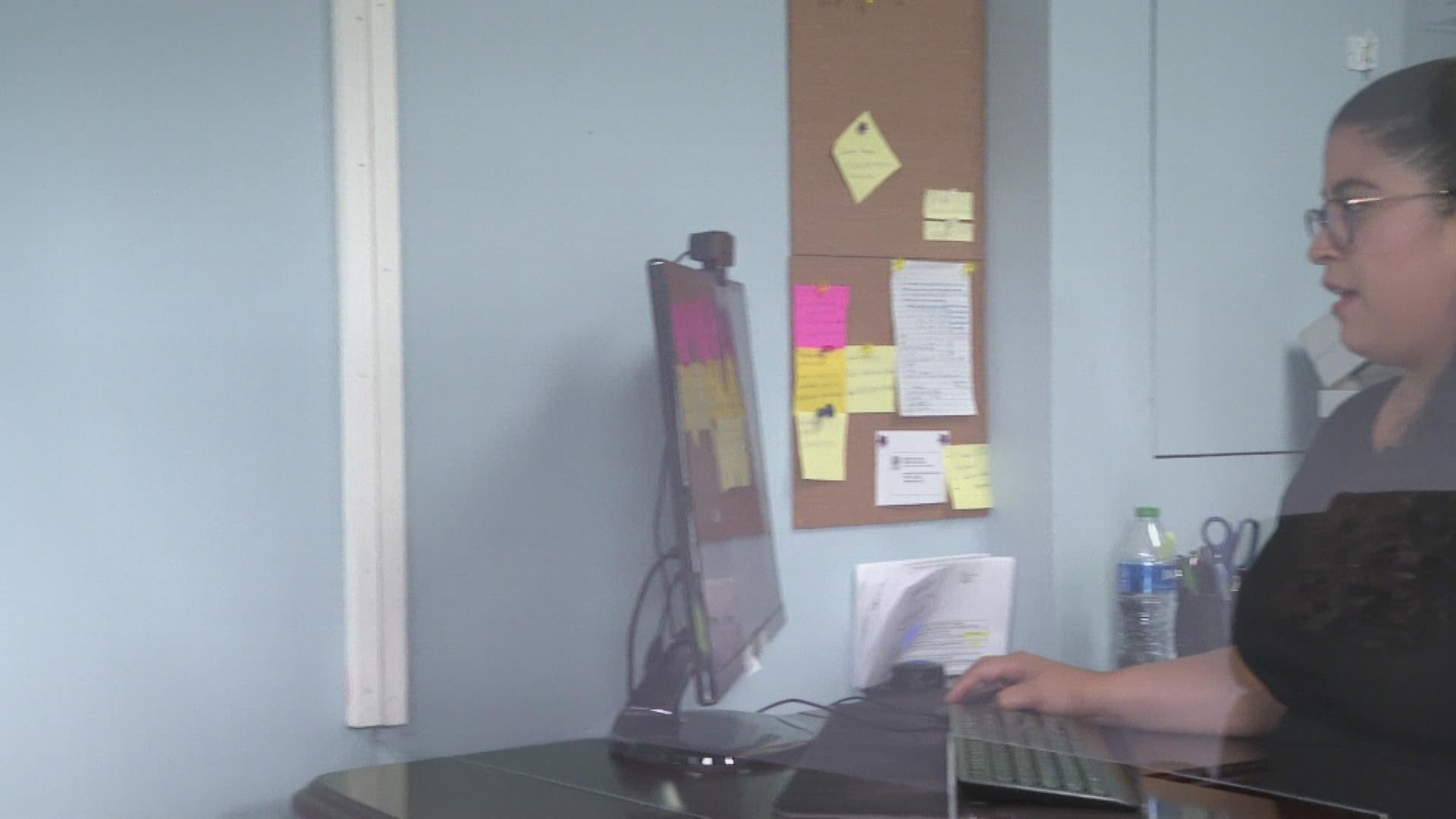ATLANTA — Nearly half of women of reproductive age who identify as Latinas in Georgia are uninsured - 45.9%, according to a study recently published by the Georgetown University Health Policy Institute.
Angelica Salazar Jimenez makes up part of that percentage. For her, it's about the high costs.
“Health insurance is really expensive; most of the ones I’ve looked at are around $500 a month and can be more than $1,000 a month if we add up my four kids," she said in an interview that has since been translated to English. "Imagine the cost annually!”
The study reveals that the number is part of the reason Georgia has much higher maternal and infant mortality rates among people of color.
Salazar Jimenez said for Latinas in Georgia; the problem is even more significant.
“Most health insurances don’t accept people without social security and a lot of Latinas here don’t have a social security number," she said. "[The statistic] doesn't surprise me because a lot of women have to grapple with that."
Another barrier women in Georgia face includes the state's decision not to expand Medicaid, the study said. There is also a language barrier.
The study also highlights that one in five women (19.3%) in Georgia of reproductive age has no health insurance, ranking Georgia 46th for the highest uninsured rate for women of reproductive age, disproportionately affecting women of color. Compared to other southern states, only Mississippi has a significantly higher rate (21.2%).
Dr. Roxana Chicas, an assistant professor at Emory University, said the 45.9% statistic is shocking and concerning.
“We know from the COVID-19 pandemic that many Latinos and people of color, work in the service industry, poultry processing, agriculture, they're gig workers," she explained. "Getting employer-based insurance is difficult in those jobs because they're already low wage and having to get insurance takes away money from their paycheck."
Dr. Chicas said these statistics have a ripple effect on the community’s health.
"There are some Latinas who are documented, who have a green card, but they're banned from obtaining health insurance through Medicaid for five years. There's a five year waiting period," she added.
She adds that about 1 million immigrants in Georgia, accounting for about 11% of the total population, and that about 400,000 are undocumented, contributing to the high percentage.
She believes things won't improve until change happens at a federal level.
"Quite frankly, immigration reform, so that these women can have a pathway to citizenship, where they can have jobs, better jobs, where they can access employer based health insurance," she said.
She said making sure our community is insured is essential.
"When people are sick, you have more people in hospitals and accessing health care, and that can be very strenuous for the health care system. So, it's really important to try to get health care and insurance to these women so that they can be healthy, as well as extend that to their families so that they can continue contributing to to this state," said Dr. Chicas.
Salazar Jimenez, an assistant at a tax office, said her family will stay insurance-free until then.
“If the health market could accept people with the individual taxpayer identification number which is given by the government to people who don’t have a way of getting a social security number to do their taxes, maybe that’s a way more Latinas could get health insurance," she said. "We trust doctors and in science, but sometimes in our culture, we also believe in home remedies."
Click here for a list of free and affordable clinics (many are income-based) in Georgia.

